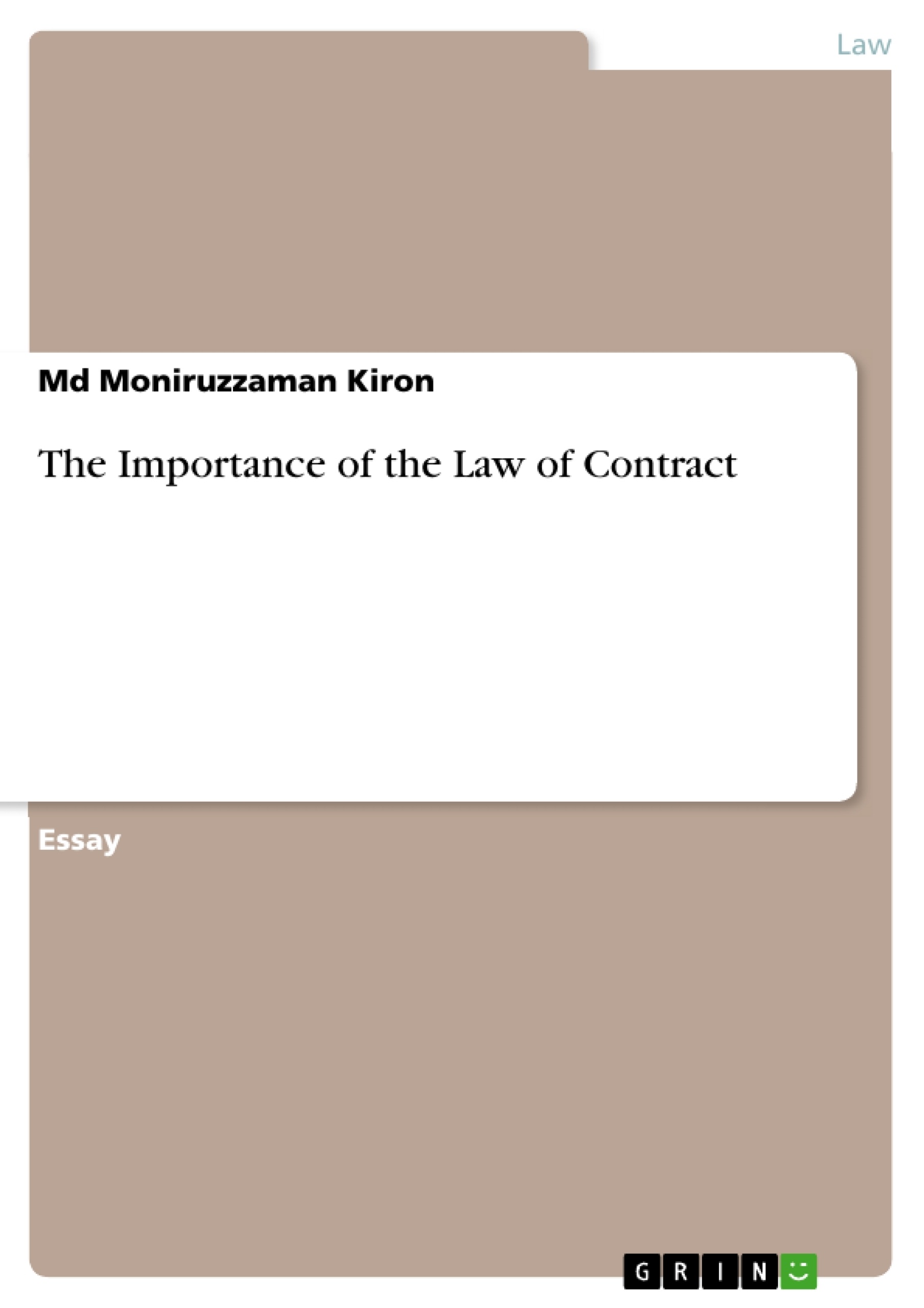Since the beginning of human civilization, there was certain rules and regulations that people used to follow. This rules and regulations are called Law which is created or established by the authorized organization and governed or enforced by controlling authority. Law is one of the most essential and interesting frames of life itself. During the Barter Exchange Age when people started exchanging products with others in order to fulfill the necessity, it brought the idea to start doing business.
Nowadays rapid economic growth of the world accelerates by the business transaction and commercial performances. In order to operate a business, Contract between two or more parties is very crucial. Although contract can take place in here and there; in a business concern, it is important for both parties to enter into a contract for further operation and to protect each other’s rights and interests. There is some specific Law needed to be followed by both parties which is called Law of Contract.
Table of Contents
- 1.0 INTRODUCTION
- 2.0 LAW OF CONTRACT.
- 2.1 OFFER
- 2.2 ACCEPTANCE OF THE OFFER
- 2.3 INTENTION TO CREATE LEGAL RELATIONSHIP
- 2.4 CONSIDERATION
- 2.5 CERTAINTY
- 2.6 CAPACITY
- 2.7 FREE CONSENT
- 2.7.1 IMPORTANCE OF FREE CONSENT
- 2.7.2 COERCION
- 2.7.3 UNDER INFLUENCE.
- 2.7.4 FRAUD.
- 2.7.5 MISREPRESENTATION.
- 2.7.6 MISTAKE
- 3.0 CONCLUSION
- 4.0 References....
Objectives and Key Themes
This report aims to provide a comprehensive overview of the Law of Contract in Malaysia, focusing on the fundamental elements and key principles that govern contractual agreements. The report will delve into the essential components of a valid contract, including offer, acceptance, intention to create legal relations, consideration, certainty, capacity, and free consent. The emphasis will be on exploring the concept of free consent and its various facets, examining how it plays a crucial role in ensuring the enforceability and validity of contractual agreements.
- The fundamental elements of a valid contract
- The importance of free consent in contractual agreements
- The various factors that can affect free consent, such as coercion, undue influence, fraud, misrepresentation, and mistake
- The legal implications of contracts lacking free consent
- The role of the Contract Act 1950 in governing contractual agreements in Malaysia
Chapter Summaries
The report begins with a concise introduction highlighting the significance of contracts in the modern world, particularly in business transactions. It then delves into the core concept of the Law of Contract, emphasizing its definition and outlining the fundamental elements that constitute a valid contract. The report explores each element in detail, including the offer, acceptance, intention to create legal relations, consideration, certainty, capacity, and free consent.
The section on free consent, a cornerstone of valid contracts, is particularly extensive. It delves into the importance of free consent and explores various factors that can undermine its presence, including coercion, undue influence, fraud, misrepresentation, and mistake. The chapter examines the legal consequences of contracts lacking free consent, distinguishing between void and voidable contracts.
Keywords
Key concepts and terms covered in this report include the Law of Contract, offer, acceptance, intention to create legal relations, consideration, certainty, capacity, free consent, coercion, undue influence, fraud, misrepresentation, mistake, void contract, voidable contract, Contract Act 1950, and legal agreements in Malaysia. The report focuses on the legal framework governing contractual agreements in Malaysia and explores the importance of free consent in ensuring the validity and enforceability of such agreements.
- Citation du texte
- Md Moniruzzaman Kiron (Auteur), 2018, The Importance of the Law of Contract, Munich, GRIN Verlag, https://www.grin.com/document/422266



